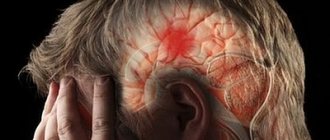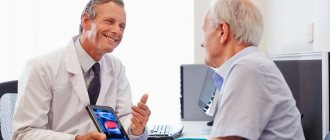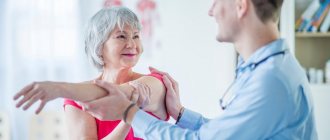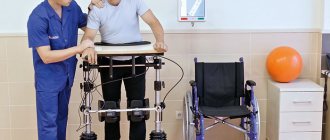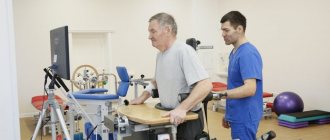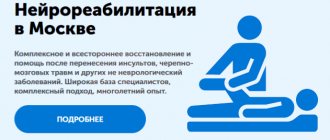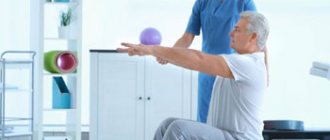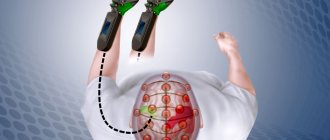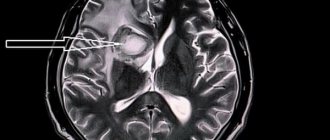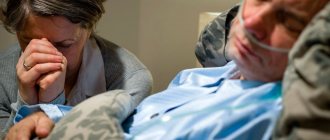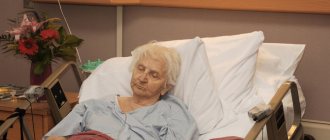Fedorova Alexandra Vladimirovna
Psychologist
Stroke is the death of a part of the brain due to circulatory problems. Depending on the location of the problem, disturbances may affect motor functions and coordination, kinesthetic sensitivity, sensory organs, logical functions, attention, and memory. Often, violations occur not in one area, but affect several functions at once. Memory impairment is observed in many locations of stroke. This is due to the fact that memory does not have a precise localization, but is distributed over the entire surface of the brain. Types of memory: - RAM allows you to retain information in your head to solve complex problems, this can be numbers, names, order of actions. Memory lasts from a few seconds to days or a week, it all depends on the task at hand, after which the information is forgotten; - short-term memory allows you to retain events that just happened in your head over a period of several seconds or minutes; - long-term memory is a “hard drive”, an archive of all data.
Types of disorders after a stroke
They depend on the location of the outbreak and its scale. Behavioral disturbances and loss of skills may occur when the limbic system of the brain is damaged. When the frontal lobes are damaged, verbal-logical memory suffers; when the hippocampus is damaged, long-term memory function is impaired. All these and other types of violations can be observed both individually and in combination. The most common events after a stroke are:
- difficulties in reproducing information when it is difficult for a person to remember the procedure for brewing coffee;
- when a person remembers his friends, relatives, but cannot remember their names, knows the purpose of an object, but cannot name it verbally;
- the reverse process may occur when a person does not recognize relatives and objects visually;
- amnesia – complete loss of memories before the stroke, while acquired skills and speech are preserved;
- disorders in short-term memory, when a person finds it difficult or impossible to remember new information.
What are the manifestations of memory impairment?
Modern medicine proposes to consider human memory on the basis of two components that play an important role in its formation. These are short-term and long-term memory, responsible for the safety of ever-memorized information used in mental processes.
After a stroke, memory loss of various types can be diagnosed, and after such a diagnosis, the recovery process can begin with an individual selection of techniques:
- verbal memory impairment;
- visual memory disorders;
- loss of motor skills;
- disturbances of emotional-figurative memory.
The most complex and difficult to recover cases include vascular dementia, which cannot be cured. Such a diagnosis cannot be considered as a death sentence, although elderly people with dementia after a stroke completely lose adequate perception of the surrounding reality. With a properly selected course of rehabilitation and well-carried out recovery, it is possible to slow down the process of deterioration of a person’s condition and adapt it to reality.
Recovery methods
Depending on the location and volume of the stroke, the duration and prognosis of treatment changes. Sometimes it happens that it becomes impossible to completely eliminate forgetfulness after a stroke. The person becomes disabled and cannot remember or recall information. But we must remember that the abilities and interchangeability of brain areas are great. With diligent and long-term treatment, improvements can be achieved. To eliminate forgetfulness after a stroke you need to:
- regularly repeat old and new information to the patient, but do not give it in large quantities;
- train in abstract thinking and memorizing visual images;
- talk in detail about a person’s life and habits, take him to familiar places;
- learn by heart names, cell phone numbers, poems, songs;
- play games where you need to remember information: chess, cities;
- Solving crossword puzzles helps a lot.
To eliminate forgetfulness after a stroke, it is important to be patient and diligent in your treatment every day. You can’t be angry with the patient, you need, on the contrary, to praise him and tell him that everything will work out. After a stroke, patients are characterized by a state of depression and apathy, so it is important to support them emotionally.
Clinical Brain Institute Rating: 4/5 — 5 votes
Share article on social networks
Restoration of cognitive functions
After a stroke, the patient often experiences speech and memory impairments. It is important to pay special attention to this, since impaired cognitive functions make it difficult to communicate normally and cause strong feelings.
How to get your speech back
After a stroke, many patients experience speech impairment. Disorders manifest in the patient while he is still in the hospital. Most often, recovery is carried out by a speech therapist at the hospital, or you can invite a doctor to your home.
The specialist works with the patient himself and gives recommendations to the family or caregiver on how to help perform the exercises. It is important for loved ones to change their behavior in everyday life so that the person’s speech recovers faster. You need to speak more slowly than usual, use simple words and phrases, accompany them with gestures and, if necessary, drawings. You can give the patient a notebook and pencil, ask him to write a series of numbers, letters, or his own name. Near each piece of furniture in the house it is necessary to put a card with its name, so the patient will remember the words again.
Useful tips to help a person restore speech:
- involve him in the conversation: say hello and goodbye;
- if there is a discussion, make sure that the patient listens and participates at least non-verbally;
- if there is a discussion, make sure that the patient listens and participates at least non-verbally;
- if it is difficult for a person to name some objects, use their names more often in your speech;
- As the patient recovers, correct his speech errors. Increase his vocabulary;
- Monitor the patient's emotions. If the person becomes upset or irritated, change the subject.
How to resist memory changes
After a stroke, it will be more difficult to solve ordinary problems. To return to your normal routine, you need to divide all tasks into small subtasks and take your time. It’s worth planning your day, setting aside more time to complete a task, focusing on only one thing and taking breaks to rest.
Several rules of behavior for the patient that will help him restore his memory and feel better:
- take care of your brain. Do not overload it, and if you feel that you are tired and have begun to think more slowly, rest;
- remove everything unnecessary. If you are busy with important work, choose a quiet place where you will not be distracted;
- concentrate on only one thing;
- get rid of anxiety. Restless thoughts interfere and distract. Often it is sadness, apathy and depression that interfere with memory functioning. It is important to concentrate on interesting activities, develop talents, and be more in nature if your health allows it. Pleasant actions distract from negative thoughts. It is important to change the attitudes: “I no longer need a good memory” or “I am not able to improve my memory” are not suitable.
Exercises to train attention and memory
- describe your yesterday minute by minute, recreate the complete picture of that day. If you forgot something, be distracted by something else or take a rest. After half an hour, return to the exercise and try to remember again;
- Make a mental shopping list, imagine what the products look like: their color, size, packaging. After an hour, try to reproduce this list;
- close your eyes, imagine the number 1. When you see it clearly, erase it and imagine 2 in its place. Do this until 10.
Psychological support
An important point in rehabilitation after a stroke at home is the patient’s motivation. His optimistic attitude and desire to achieve his rehabilitation goal.
After a stroke, care at home should be psychologically comfortable. A person who has had a stroke may have problems controlling their emotions. He may often get angry, cry, scream and laugh. Such a person's mood changes quickly, he may be depressed or confused, experiencing anxiety, fear, frustration, hostility and anger. Psycho-emotional disorders can hinder recovery of health.
At such moments, the patient cannot be left alone for a long time; you need to talk to him, even if it seems that he does not hear or does not understand you. You should definitely involve him in household chores, for example, asking him to help peel potatoes or serve an item, if possible.
Be sure to walk with the patient, leave the house more often, so that he feels part of society. If a person cannot walk yet, invite acquaintances and friends to visit so that he can see other people and communicate with them.
If you follow all these tips, the patient’s recovery will progress, rehabilitation after a stroke at home will have its effect, and the person will definitely achieve the goals that the doctor prescribes for him.
You will see certain signs that the patient is getting better:
- shows interest in the environment, becomes proactive;
- sits down and walks on his own with a walker or without orthopedic devices at all;
- does some things independently: can wash the dishes or prepare a salad;
- expects your arrival at the appointed time or remembers an appointment, for example, on Tuesday at 14:00;
- can find a word in a dictionary or a name in a notebook;
- follows his own meal and medication schedule.
Find out how to get comprehensive rehabilitation at home in St. Petersburg with an effectiveness of 95% of the intended result
To know
Care and recovery after a stroke at the Olympia House nursing home
The rehabilitation programs used by our specialists include all the necessary measures to restore memory and cognitive processes.
Olympia House, a network of private boarding houses for the elderly, specializes in providing quality medical services for residents:
- compliance with the conditions of therapy and rehabilitation;
- psychological comfort and calm environment;
- constant supervision by experienced caregivers;
- assistance in hygiene procedures, feeding;
- Qualified doctors work with patients.
During rehabilitation and socialization, qualified psychologists actively work with elderly people living in boarding houses. We maintain a friendly and relaxed environment, provide leisure activities and experienced staff to provide assistance to people in dire need.
A stroke in old age can be suffered on the legs, but lack of treatment and rehabilitation can lead to the development of various consequences. Our network of boarding houses provides high-quality and targeted care for the elderly in Moscow and provides individual rehabilitation services for residents.
Return of lost speech skills
Initially, when a client loses speech, it is important to speak in principle. And after that, specialists will help you work on your diction. First of all, a neuropsychologist works with the patient, helps to identify the problem and finds ways to resolve it. But you should be prepared for the fact that complete recovery may take several years. And all this time, the patient should be observed by a specialist and perform all the necessary exercises at home. It is extremely important to stimulate the speech apparatus with various exercises, both externally and internally.
You need to start the learning process again from simple to complex. If you are unable to restore the muscles of the pharynx and larynx with the help of specialized exercises and massage, then you can use electrical stimulation using professional equipment.
Restoring vision, eyes after stroke
Often, apoplexy affects individual vessels that supply the eyeball with everything necessary. This may lead to the following:
- Complete or partial loss of vision.
- Inability to open and close the eyelid.
- Problems moving the eyes up and down and to the sides.
- The appearance of presbyopia is a change in focus and the pensioner cannot distinguish small objects at a short distance.
A professional and experienced ophthalmologist will help you cope with such deviations. It is important to start treatment at the initial stages, carry out complex therapeutic exercises for the eyes, and take medications to relax muscles . In some cases, surgical intervention is necessary to fully or partially restore visual acuity.
Possible negative consequences of cerebrovascular accident
Apoplexy is one of the most severe and dangerous types of cerebrovascular insufficiency, in which the optimal amount of blood ceases to flow into the human brain.
As a result, oxygen ceases to flow into organs and systems, which leads to oxygen starvation and various neurological disorders. The initial sign of the onset of the disease is thrombosis, rupture of blood vessels due to vascular insufficiency. The most common negative consequences of such an apoplexy are lack of oxygen, death of neuronal brain cells, and internal hemorrhage.
The attack itself lasts a day or more. And during its onset, the patient must be urgently taken to the hospital, where he will be under the supervision of a team of qualified doctors. It is the timely call of an ambulance, the help of doctors and subsequent rehabilitation that is extremely necessary, since the process of death of brain cells is extremely dangerous and continues even after the main symptoms of pain have already passed.
What is the danger of having an attack?
- Partial or complete loss of physical activity, as the command to the limbs is given by the affected brain.
- Mental disorder, loss of speech and cognitive abilities.
- Memory loss, temporary or complete amnesia.
- Impaired coordination of movements and fine motor skills.
- Complete or partial loss of vision.
- decreased immunity, infectious diseases, etc.
In each specific case, such dangerous consequences manifest themselves to a more or less pronounced degree, while some are absent. This depends on focal or complete brain damage, which directly affects the possibility and duration of recovery.
Restoration of motor functions
Often, after suffering an apoplexy, the patient loses his previous motor activity in full or in part. For example, hand motor skills suffer, movement coordination is impaired, and limbs do not move. Doctors also strongly recommend that you strictly adhere to bed rest for the first time and not get up, even if you have the strength to do so. The best option would be to sit on a special bed or use pillows to warm up your arms and legs.
It is useful to use therapeutic massage , which can only be performed by a qualified master. It can be general and complex in nature or affect a specific muscle group. It is also important to develop muscles, which will be an excellent barrier to the appearance of spasms and pain. If the client is unable to move parts of the body, then a passive version of gymnastics is used.
It is important to understand that physical therapy, massage sessions and feasible physical activity alone will not be enough to restore lost motor activity. It is important, along with them, to use professional equipment. For example, by applying current pulses, it is possible to stimulate the affected areas and bring them back into active tone.
Baths and applications are also used as additional measures to improve blood circulation. The doctor may prescribe medications to relax muscles, eliminate pain and spasms. Pay special attention to the person’s face and facial expressions. In case of pinched nerves or paralysis, facial expressions change noticeably. You can cope with its restoration with the help of simple exercises. You should do gymnastics for your eyes and mouth, make a wide smile, pronounce various sounds, squint your eyes tightly and relax your eyelids.
